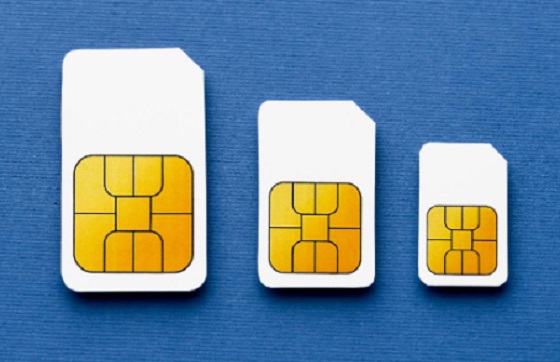Also Interesting
Exploring the magnetism of virtual gaming collectibles

Imagine, for a moment, that you’re deep in the thick of an intense online battle. Your opponents are closing in, and your heart is racing. Suddenly, you pull off an incredible move and snatch victory from the jaws of defeat. Your reward, beyond the bragging rights, is a rare digital “skin” to adorn your virtual protagonist. This isn’t just any old graphic – it’s a currency in a bustling online economy CSGOLuck CA use to engage players in a whole new way. In these realms, a skin’s value goes beyond aesthetic appeal; it’s a digital asset that carries weight in the social fabric of the gaming culture.
Deciphering the allure of virtual collectibles
In the same way people have coveted rare baseball cards or limited edition sneakers, gamers seek out these skins for their rarity and prestige. Each holds a value, sometimes reaching astronomical amounts in real-world currency, driven by demand, scarcity, and the community’s valuation. To understand this phenomenon is to recognize the traditional collectible markets reflected in digital form, transforming how we perceive ownership and value in the modern age. As some gamers adorn their characters with uncommon skins, they don’t just change their look; they reinforce their status within the virtual community.
The fascination with virtual collectibles extends to the emotional payoff they deliver. Earning or acquiring a rare item carries a sense of achievement and progress, mirroring milestones in the physical world. For many, these virtual treasures become extensions of personal narratives within the game, encapsulating moments of triumph, perseverance, and the journey of their virtual alter egos. This personal resonance infuses these items with intrinsic value, blending storytelling with interactivity in a compelling dance of digital show-and-tell.
The social fabric of gaming economies
The vibrant channels of these online platforms offer more than gaming; they provide a hub for social interaction. Digital gatherings, whether for competitive events or casual meetups, are the beating heart of this landscape. Within these digital walls, an in-game triumph can echo throughout the community, not just elevating one’s standing but also serving as an icebreaker, a conversation starter, and even a means to forge lasting bonds. It’s a fascinating interplay between gaming prowess and social engagement, where each victory can amplify one’s social capital.
Engagement driven economies
Enter the virtual marketplace, where players become traders, buyers, and sellers, wheeling and dealing digital goods with all the seriousness of a stock exchange. The economies are dynamic, with prices fluctuating based on real-time supply and demand. The buzz is not just about playing the game but also about mastering this marketplace. Just as someone might invest in a piece of artwork or a startup, gamers carefully curate their digital inventory, knowing its potential to level up their gaming and trading pursuits.
Why we collect and gather digitally
At its core, the drive to collect is deeply human – a trait that extends effortlessly into the digital realm. Gathering a set of rare skins or items is akin to completing a puzzle that reflects one’s identity within the game. This behavior mirrors our off-screen habits, where the thrill is part excitement, part nostalgia, and wholly about the joy of possession and completion. It’s this intricate interplay of emotional and psychological factors that make the acquisition of these digital tokens anything but child’s play.
The skillful side of gaming platforms
As we venture further, we encounter platforms that balance the scales between luck and prowess. Here, the competition is fierce, and strategy dominates. These platforms captivate not just the casual player but the dedicated gamer – those who sharpen their skills as one would in any sport or discipline. They’re not just playing; they’re honing, refining, and ultimately showcasing their abilities in the virtual arena where every move could be the difference between defeat and becoming a legend in the community.
Navigating the ethics of the game
With great popularity comes great responsibility. Ethical gaming practices are the cornerstone of these online platforms, where fairness and transparency are pivotal. It’s a delicate balance – ensuring that the thrill of the game never crosses into the risks associated with real-life gambling. Moderation systems, self-imposed limits, and diligent regulations are some of the measures in place to keep the virtual betting halls enjoyable and safe. This commitment to ethics serves as the bedrock for a trust-based relationship between the platform and its user base.
Personalization at your fingertips
Finally, the ability to tailor one’s gaming experience is perhaps the most personal aspect of this digital landscape. Buying a new skin, investing in an accessory, or trading for a unique item allows players to express their individuality and style. These virtual trinkets do more than simply change the visual aesthetic; they often come with bragging rights and stories of achievements that make each one priceless to the owner. This level of personalization not only enhances the gaming experience but deepens a player’s emotional investment in a game – turning a pastime into a vibrant passion.
Also Interesting
If You Frequently Travel, A Second Phone Number Can Be A Cost Effective Solution

Advances in transport technology have reduced not only travel times but also costs. Airlines and tour companies offer a wide array of cut-price deals, so if you already have a destination in mind, sign up for email alerts. Today, you can fly from Canada to Europe in around 6 hours, whereas decades ago, the same journey took weeks by boat. Maybe you travel to represent your organization for work-related purposes. In that case, you get to combine business and leisure, so you’ll return to the office refreshed and ready to be productive.
Suppose you’re an international traveler, a savvy vacationer, or even a local adventurer. In that case, you know a few trips make your trip easier: a passport, comfy shoes, and a six-port USB charger. And it doesn’t take long to realize there’s one thing you’ve forgotten. You need an eSIM Canada for enhanced privacy protection, streamlined communications, and the ability to avoid expensive roaming charges. You probably have an expensive Android or iPhone device, so the last thing you want is another handset. There are many ways to add an extra phone number that works with your smartphone.
Get And Setup An eSIM, Which Works Like A Physical SIM Card
eSIM technology offers a seamless, more integrated approach to connectivity, so it’s a progress from traditional SIM cards. By enabling the eSIM profile, you get access to the operator’s network, which is optimized for local access and helps avoid potential roaming restrictions. This level of resiliency is convenient for specific use cases, such as Google Maps, that require automatic initial connectivity. I you’re traveling, it’s recommended to install the eSIM a couple of hours before your trip or once you’ve reached your destination. The validity period starts counting. You’ll need a WiFi or data connection to set up the eSIM on your device.
You can manually activate the eSIM by pasting the installation code (and any other required information) if you don’t have another device to scan. You should activate the eSIM as soon as you arrive at our destination to prevent your mobile phone data from being used. Activating roaming or data roaming from your device will activate the plan. You can install the eSIM by scanning the QR code you received from the provider: open the built-in camera app, point the camera at the QR code, and tap the banner that appears on your phone. Label the eSIM and set your preferences for calls, messages, and data.
Not Only Do You Get To Keep Your Phone, But You Can Also Add A New Number
An additional phone number allows you to distinguish between personal and professional calls and messages, fostering a healthier work-life balance, and adds another layer of anonymity when interacting with strangers. Work, friends, family, and dating contacts are entirely separate. Texting is unlimited, calling works with your carrier within minutes, and voicemail is easy to customize. You can talk and text using any phone number at any time. The second line might be a disposable or semipermanent number. When traveling overseas, you’ll need to provide your phone number to hotels, bicycle-sharing services, and so on.
Having a phone that works just like it does back home when traveling abroad is the best thing you can do to reduce stress. Being able to keep in touch with family and friends, using Google Translate, and having access to booking sites in the event of delays are just some of the reasons why Internet access is indispensable. Get a full-featured number that supports limitless Internet so you can use apps like WhatsApp, Facebook Messenger, or Skype. It’s not a good idea to use image-heavy social media apps like Snapchat or Instagram.
How To Get The Best Performance Out Of Your Esim When Traveling
Some smartphones have both a removable SIM card and an eSIM card, which allow users to have two separate numbers – i.e., a personal number and a work number – on one device. After establishing a connection to a mobile network, your eSIM will be functional and ready for immediate use. Using a local mobile network while overseas is more affordable than paying roaming costs to your home network; should you mistakenly erase your eSIM, you must reach out to your provider and ask for another installation code. Some device manufacturers offer instructions on how to use plans from two different providers.
In what follows, we’ll present our favorite tips on how to make the most of your eSIM when traveling abroad:
● Strategically plan your data usage: Review your plan details before jetting off. Understanding what your eSIM package includes will help you prepare for your trip and stay connected while miles away.
● Give your eSIM a custom name: During the eSIM installation, you can label your new SIM. For instance, you can name the eSIM “Travel” or “Canada eSIM” and your existing physical SIM “Personal”. If you change your mind, you can edit them at any time.
● Turn on push notifications: You can turn on push notifications to be informed if data is running low or your eSIM is about to expire. You can stay focused without constant interruptions.
In Closing
If you’re traveling internationally, having a second phone number can offer several advantages, such as security, privacy, and convenience. It can be used for bookings, online registrations, and transactions, therefore minimizing the risk of your primary number being exposed to scams and other types of cyberattacks. You can install one or more eSIMs on your device and have two phone numbers at the same time. Remember, the service provider has control over the subscription and is required to maintain an adequate phone signal.
The eSIM plan will automatically expire once you’ve used up your data or when your purchased days run out. You can add more days to your existing plan by reloading your eSIM: simply log into your account and choose the eSIM you wish to extend so you don’t have to worry about connectivity interruptions. This is ideal for short or even long-term travelers.
Also Interesting
How to Deposit and Withdraw in CAD at Sol Casino: A Guide for Canadian Players

When choosing an online casino, Canadian players not only look for exciting games and bonuses but also for easy and secure payment methods in Canadian dollars (CAD). Sol Casino understands this need and has created a streamlined system for deposits and withdrawals that suits players across Canada.
This guide walks you through how to fund your account, cash out your winnings, and which methods are most efficient and convenient.
Why Use CAD at Sol Casino?
Sol Casino supports transactions directly in Canadian dollars, which is a huge advantage. This means:
No currency conversion fees
Simplified banking
Faster transactions
Better tracking of your gambling budget
For Canadian players, avoiding unnecessary fees and delays is crucial. Sol Casino ensures you can deposit and withdraw in your local currency without any added complications.
How to Deposit Funds at Sol Casino (Step by Step)
Funding your Sol Casino account is simple. Follow these steps to make a deposit:
1. Log in to your Sol Casino account.
2. Go to the Cashier/Deposit section.
3. Choose your preferred payment method.
4. Enter the amount you wish to deposit (minimum deposit usually starts at $20 CAD).
5. Follow the prompts to complete the transaction.
Most deposits are instant, meaning you can start playing right away.
Popular Deposit Methods for Canadians
Sol Casino offers a variety of trusted options tailored for Canadian players:
Interac e-Transfer: A go-to choice in Canada, easy to use and highly secure.
MuchBetter: A modern e-wallet app offering fast, private transfers.
ecoPayz: Another reliable e-wallet widely used in Canada.
Visa/Mastercard: Traditional and familiar for most users.
Cryptocurrencies: Includes Bitcoin, Ethereum, and more for added privacy.
Each method is secure and designed to fit your lifestyle and preferences.
How to Withdraw Winnings in CAD
Cashing out your winnings is just as easy. Here’s how to request a withdrawal:
1. Go to your account dashboard and select Withdraw.
2. Choose the same method used for depositing (if possible).
3. Enter the amount you want to withdraw.
4. Submit your request and wait for confirmation.
Before processing your first withdrawal, Sol Casino may ask for ID verification to comply with KYC (Know Your Customer) rules. This is standard for any legitimate casino and helps protect your account from fraud.
Withdrawal Processing Time
Sol Casino processes withdrawal requests quickly. Here’s a general idea of how long it may take:
E-wallets (MuchBetter, ecoPayz): 0–24 hours
Cryptocurrency: 1–12 hours (depending on network speed)
Interac: 1–2 business days
Cards (Visa/Mastercard): Up to 3–5 business days
Once your identity is verified, future withdrawals are often processed faster.
Tips for Smooth Transactions
Verify your account early to avoid delays during your first withdrawal.
Use the same method for deposit and withdrawal whenever possible.
Set responsible limits to manage your gambling activity.
Watch for promotions offering cashback or deposit bonuses for specific payment methods.
Sol Casino also sends notifications and email confirmations for each transaction, adding transparency to the process.
Customer Support for Payment Issues
If you run into any trouble while depositing or withdrawing, Sol Casino has a 24/7 support team ready to help. You can use:
Live chat for immediate assistance
Email support for more detailed inquiries
FAQ section with answers to common questions about payments
All services are available in English and French, making support accessible to all Canadian users.
Conclusion: Fast, Flexible, and Canadian-Friendly Banking
Sol Casino has built a payment system that respects Canadian needs. With support for CAD, a variety of local methods like Interac and MuchBetter, and fast withdrawals, it provides a hassle-free banking experience. Whether you’re playing for fun or aiming for big wins, Sol Casino ensures your money is handled safely, securely, and efficiently.
-

 2025 Federal Election2 days ago
2025 Federal Election2 days agoThe Federal Brief That Should Sink Carney
-

 Media1 day ago
Media1 day agoCBC retracts false claims about residential schools after accusing Rebel News of ‘misinformation’
-

 Bjorn Lomborg1 day ago
Bjorn Lomborg1 day agoNet zero’s cost-benefit ratio is CRAZY high
-

 2025 Federal Election1 day ago
2025 Federal Election1 day agoMark Carney Wants You to Forget He Clearly Opposes the Development and Export of Canada’s Natural Resources
-

 2025 Federal Election1 day ago
2025 Federal Election1 day agoPolice Associations Endorse Conservatives. Poilievre Will Shut Down Tent Cities
-

 2025 Federal Election1 day ago
2025 Federal Election1 day agoCarney’s Hidden Climate Finance Agenda
-

 Alberta2 days ago
Alberta2 days agoLow oil prices could have big consequences for Alberta’s finances
-

 2025 Federal Election1 day ago
2025 Federal Election1 day agoPolls say Canadians will give Trump what he wants, a Carney victory.



